(Editor’s note: UAW President Shawn Fain responded to Bill Ford’s remarks. The story has been updated to include his comments.)
Nearly five weeks in, there appears to be no immediate end in sight for the UAW’s strike against Detroit’s Big Three. In his first appearance since the union’s contracts with his company expired, Ford Chairman Bill Ford spoke out, warning the walkout could destroy the American auto industry, and saying “We need to come together to bring an end to this acrimonious round of talks.”
For the first time since the United Auto Workers union struck Detroit’s Big Three automakers Sept. 14 at 11:59 p.m., Ford Executive Chairman Bill Ford spoke out Monday morning, issuing a dire warning “about the future of the American auto industry,” and asking union bargainers to help find a workable solution.
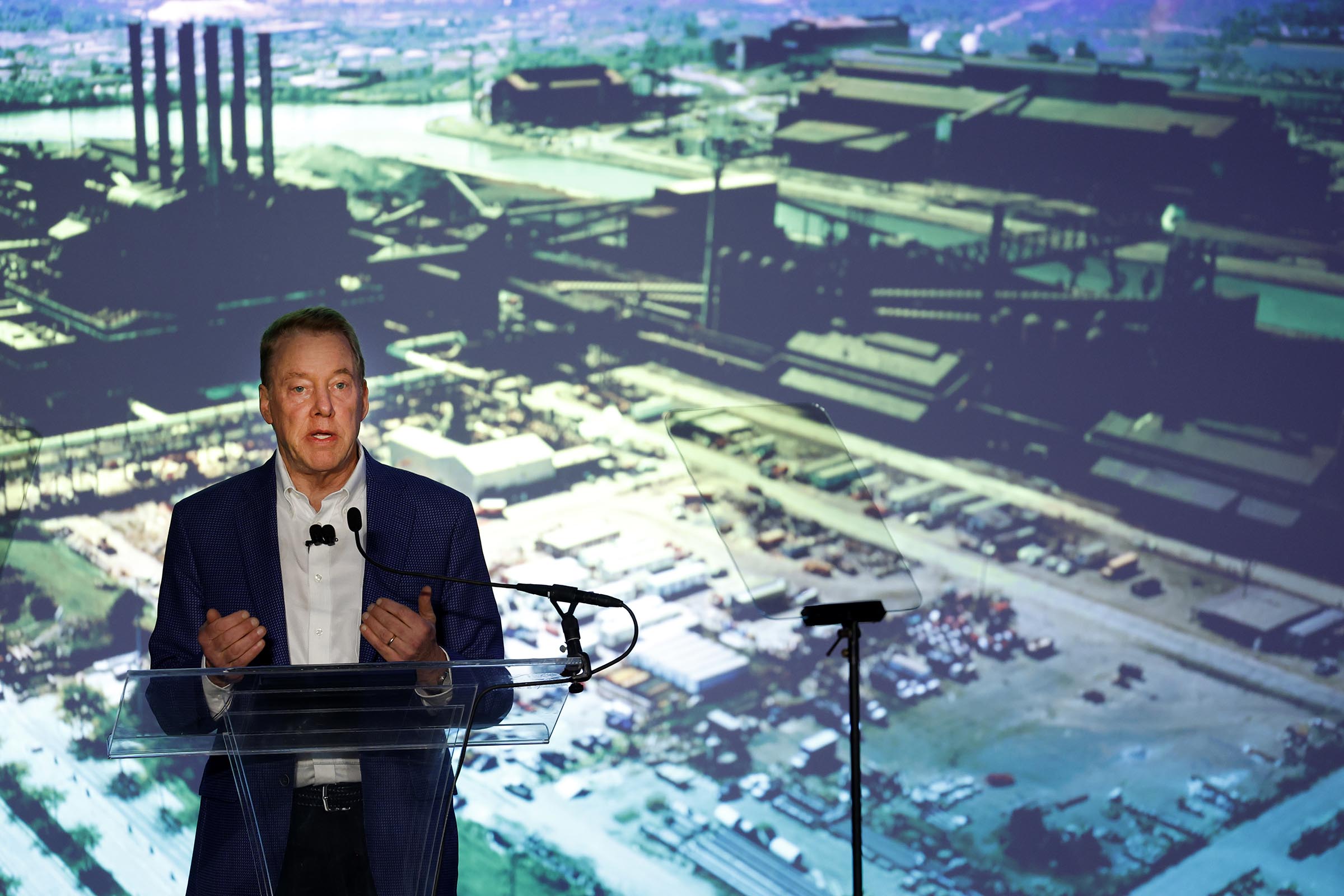
Ford spoke at the Rouge Manufacturing Complex where the UAW won a historic battle and earned recognition by the automaker nearly a century ago.
When the strike began, the UAW ordered a “stand-up strike” targeting one plant at each automaker: General Motors, Stellantis and Ford. But the union focused solely on GM and the Euro-American Stellantis a week later when it added 38 parts distribution plants to the list of those targeted. Now, Ford has taken arguably the biggest hit, workers last week striking at the Kentucky plant producing F-Series heavy-duty pickups. That plant alone generated about $25 billion in revenues for Ford in 2022.
An “incredible opportunity”
“On my watch, Ford is the only automaker to add UAW jobs over the last 15 years,” Bill Ford said during his brief address. “Ford is the strongest partner the UAW has ever known,” he added, insisting, “We will succeed or fail together.”
Last week, Ford officials called the company’s latest contract its most generous ever, and insisted it has no more to give. For his part, Chairman Ford said on Monday didn’t get into details but said there was an “incredible” opportunity for both sides to come together, “bringing growth and prosperity to everyone.”
“We need to come together to bring an end to this acrimonious round of talks,” he said .
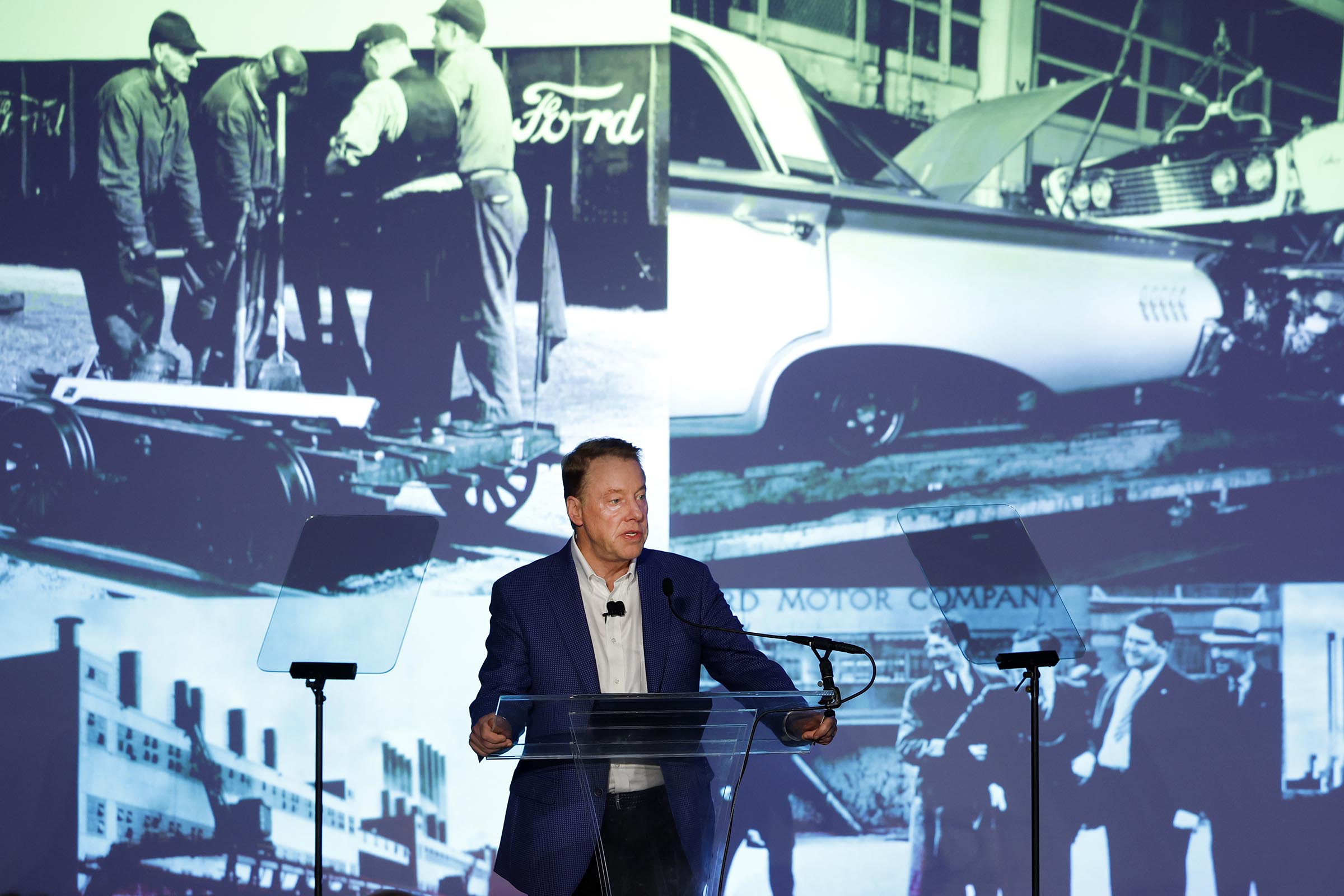
“We need to come together to bring an end to this acrimonious round of talks,” said Chairman Bill Ford.
Fraught relations
Relations between the UAW and the three manufacturers have been strained almost since the moment upstart Shawn Fain beat the incumbent union president, Ray Curry, in a hotly contested runoff in March. Fain quickly labeled the automakers “the enemy” and laid out aggressive goals for the upcoming contract talks that began in July. The UAW eventually laid out a list of 700 demands, including raises of more than 40%, the return of cost-of-living allowances, a 32-hour work week and more.
Each automaker must bargain for its own contract, though the UAW had, until this year, focused on the manufacturer seen as most likely to accept the most lavish settlement. It would then be used as a pattern for the others. For the first time, the union this year bargained right through to the deadline with all three. And it went with the first-ever limited stand-up strike approach to up the pressure.
Ford takes heat
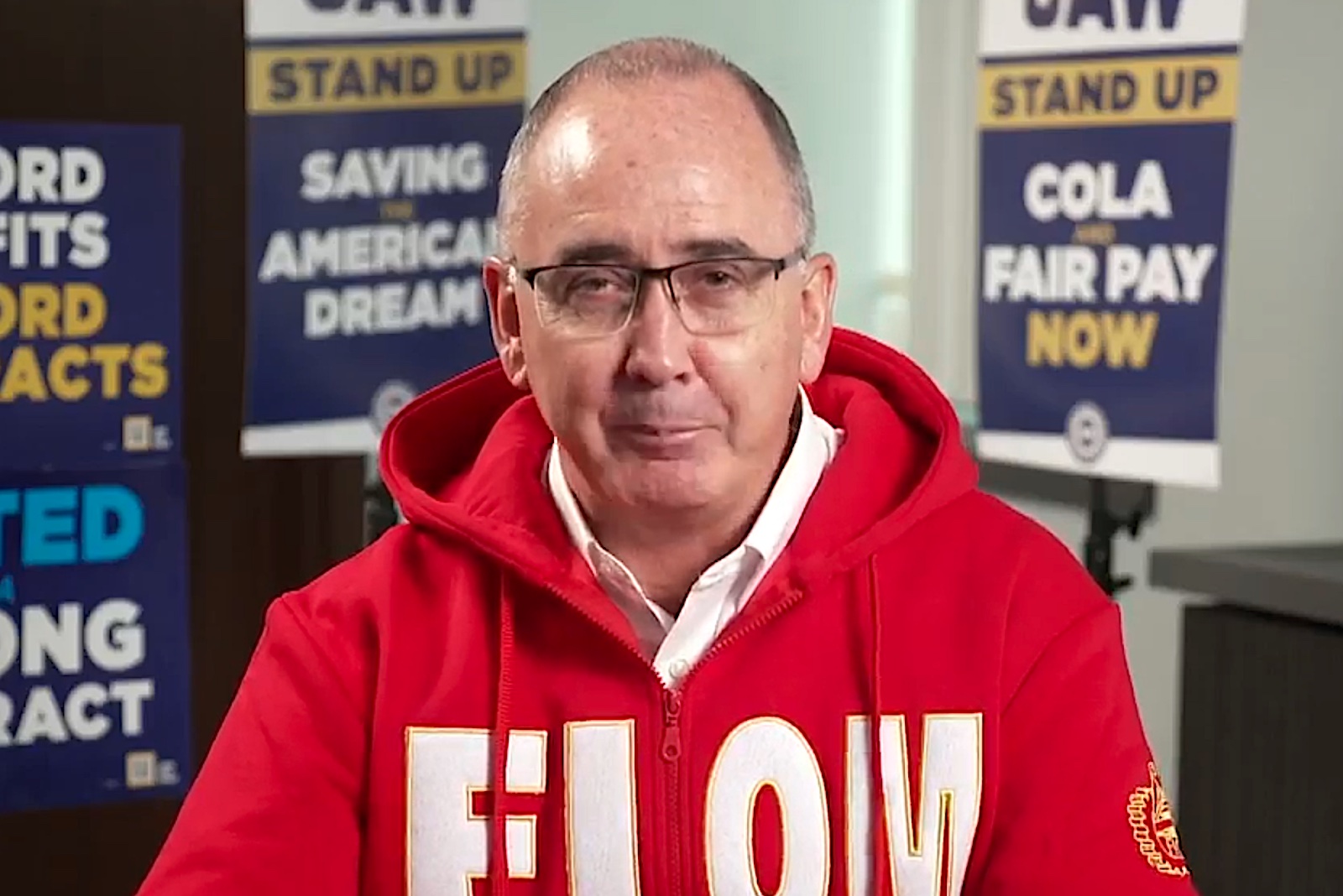
UAW President Shawn Fain accused Ford and its crosstown rivals of “gaming” the negotiations and surprised Ford by striking its big truck plant in Kentucky.
Early on, many industry observers thought Ford was best positioned to settle. And the UAW’s initial response appeared to agree. But the walkout in Kentucky turned that upside-down.
“Ford thought they could sit back and not make further progress in bargaining because they thought they had the best deal on the table,” Fain said last Friday.
Ford and the UAW have a long history, with founder Henry Ford a fierce foe of organized labor before agreeing to union representation. In recent years, however, Ford has typically built up good relations compared to its Detroit rivals — reflected by the fact it was GM that faced a costly, 40-day walkout in 2019, the last round of contract talks.
Ford bills himself a “pro-union leader”
In a speech at the huge Rouge Manufacturing Complex in Dearborn, Michigan Monday, the Ford chairman described himself as “the most pro-union leader in the industry,” adding the ongroing strike “is deeply personal to me.”
Ford said he agreed “our UAW members deserve more” than they currently make. But he offered no details about the current state of bargaining, nor announce any new measures that could break the logjam. Instead, the executive focused on the potential damage the strike could cause if it drags on.
America’s competitive edge at stake

About 35,000 of the nearly 150,000 union workers at GM, Ford and Stellantis now are walking picket lines.
“This is about the future of the American auto industry,” he said, adding that Ford (and, unsaid by name, GM and Stellantis) could “lose the battle with the competition.” In turn, that could weaken America’s competitiveness. The strike also threatens to “hurt” plenty of Americans not directly working in the auto industry, he added.
“Let’s come together, reach an agreement and take the fight to the real competition,” he said.
There are today dozens of foreign-owned assembly plants, operated by manufacturers like Toyota, Hyundai and BMW, operating across the U.S. They already have a sizable manufacturing cost advantage over Detroit, as does Texas-based, non-union Tesla. Industry leaders, including Ford CEO Jim Farley, have warned that too large a settlement would reduce the amount of money Detroit manufacturers have to invest in future products.
Fain offers predictable response
Ford has already said that its plan to set up a major battery plant for future EVs in Marshall, Michigan could be scrapped, depending upon the outcome of the negotiations.
Union chief Fain was unsurprisingly irked by Bill Ford’s comments, and responded accordingly Monday afternoon.
“Bill Ford knows exactly how to settle this strike. Instead of threatening to close the Rouge, he should call up Jim Farley, tell him to stop playing games and get a deal done, or we’ll close the Rouge for him,” Fain wrote in a Tweet.
“It’s not the UAW and Ford against foreign automakers. It’s autoworkers everywhere against corporate greed. If Ford wants to be the all-American auto company, they can pay all-American wages and benefits. Workers at Tesla, Toyota, Honda, and others are not the enemy—they’re the UAW members of the future”
At the moment, there are 35,000 UAW-represented workers walking the picket lines. All told, the union represents nearly 150,000 members at GM, Ford and Stellantis.

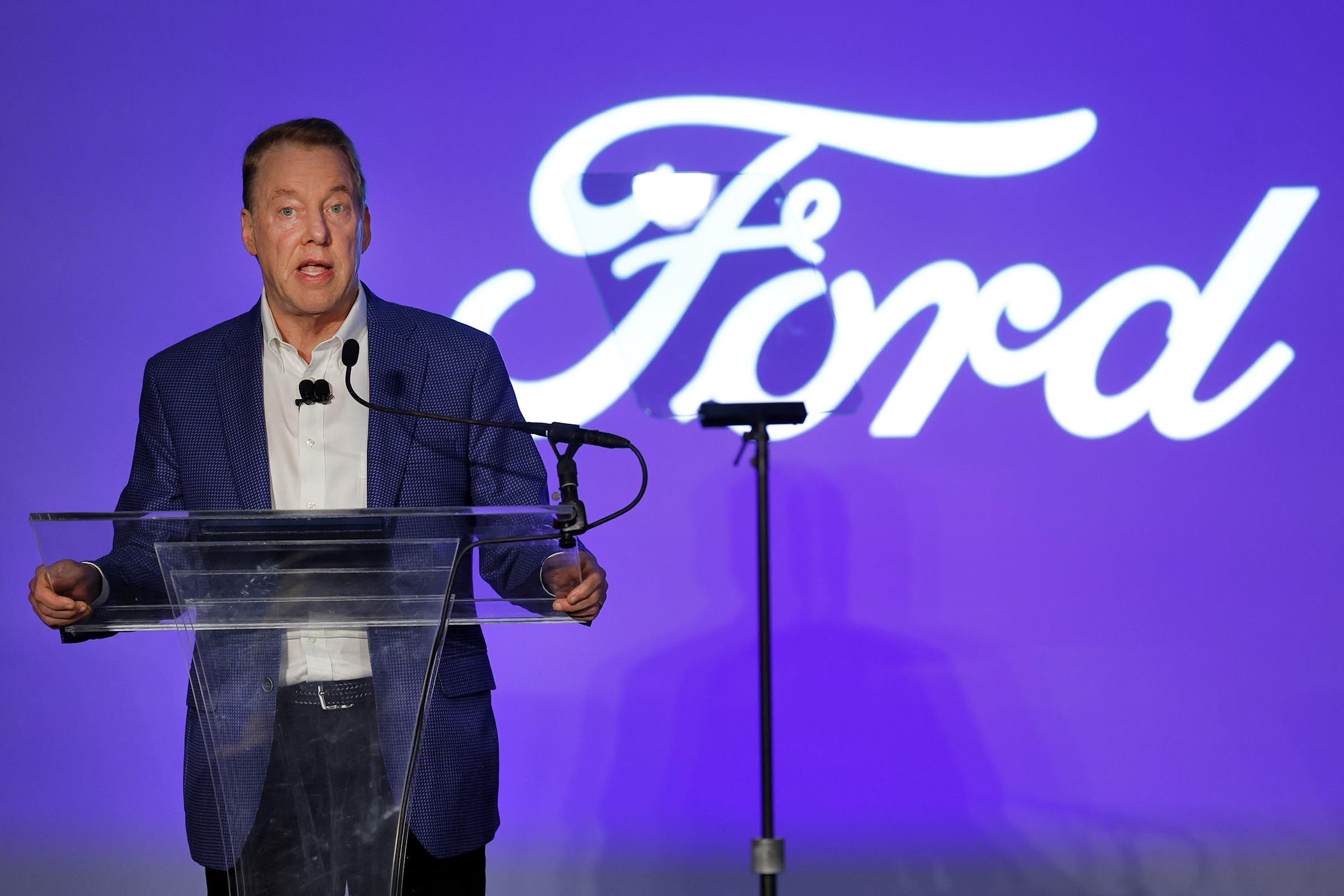
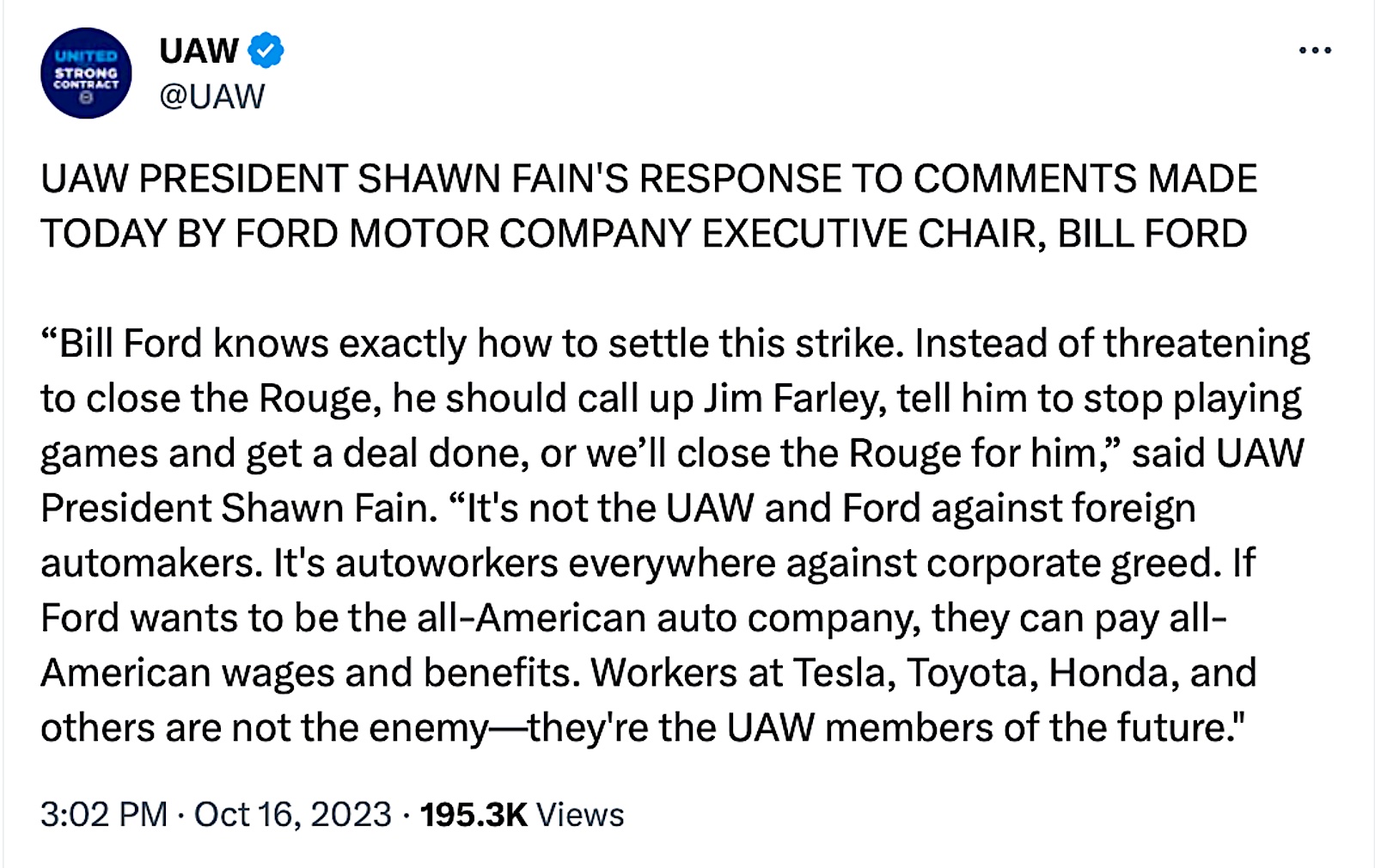
0 Comments